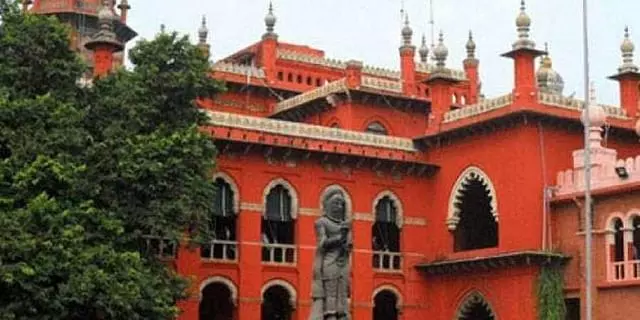
Tasmac 'scam' probe: Madras High Court orders ED to respond
The court, hearing a writ petition filed by film producer Akash Baskaran, raised sharp questions about the legal basis for the ED’s probe and its authority to seal businessman Vikram Ravindran’s residence and office

The Madras High Court has directed the Enforcement Directorate (ED) to clarify its actions in the ongoing investigation into the alleged Rs 1,000 crore Tamil Nadu State Marketing Corporation (Tasmac) liquor licence scam, particularly regarding the targeting of film producer Akash Baskaran and businessman Vikram Ravindran.
Also read: TASMAC ‘scam’ allegations political deception: TN CM Stalin slams Opposition
The court, hearing a writ petition filed by Baskaran, raised sharp questions about the legal basis for the ED’s probe and its authority to seal Ravindran’s residence and office.
What Bench said
“What is the basis for deciding to investigate Akash Baskaran and Vikram Ravindran? Under what authority did the ED seal Vikram’s house and office?” the Bench asked.
Also read: 'No smoke without fire', says Palaniswami on ED probe into Tasmac
The ED responded that the sealing was necessitated because Ravindran’s premises were found locked during the attempted search.
However, the court pressed for evidence linking both individuals to the Tasmac case and demanded compliance with the Prevention of Money Laundering Act (PMLA).
Baskaran, a 32-year-old film producer from Teynampet, Chennai, filed the petition under Article 226 of the Constitution, challenging a 12-hour search conducted at his residence on May 16. The ED seized his laptop, iPad, smartphones, and film production documents, which Baskaran claims have paralysed his business.
'Fishing expedition'
His affidavit asserts he has no connection to the Tasmac case, and the search was a “fishing expedition” lacking a predicate offence or specific evidence against him. “The ED’s actions were arbitrary, violating my fundamental rights to privacy and property,” Baskaran stated.
The court also questioned why the ED did not seek police assistance to access Baskaran’s premises in his absence, as permitted under PMLA, and scrutinised the coercive tactics used during the search, including the overnight detention of Baskaran’s driver, Durairaj Selvaraj, who was pressured to sign statements. A summons issued to Baskaran on May 20 was only discovered by him on May 23, as it was pasted on his door while he was away.
The ED’s actions are further complicated by a Supreme Court interim order dated May 22, staying the Tasmac probe due to jurisdictional concerns and potential overreach. The Madras High Court emphasised that the ED must adhere to PMLA’s Section 17, requiring a recorded “reason to believe” based on credible evidence, not assumptions. The court cited recent Supreme Court rulings to underline the need for procedural fairness.
Regarding Ravindran, the ED’s sealing of his locked residence and office has drawn particular scrutiny. The agency’s claim that the sealing was a procedural necessity has not satisfied the court, which seeks clarification on the legal grounds for such action and any evidence implicating Ravindran in the scam.
The ED has been ordered to file a detailed response, with the next hearing scheduled for June 17. Baskaran seeks to quash the search and seizure and demands the return of his seized properties, arguing ED's retention is unlawful.

